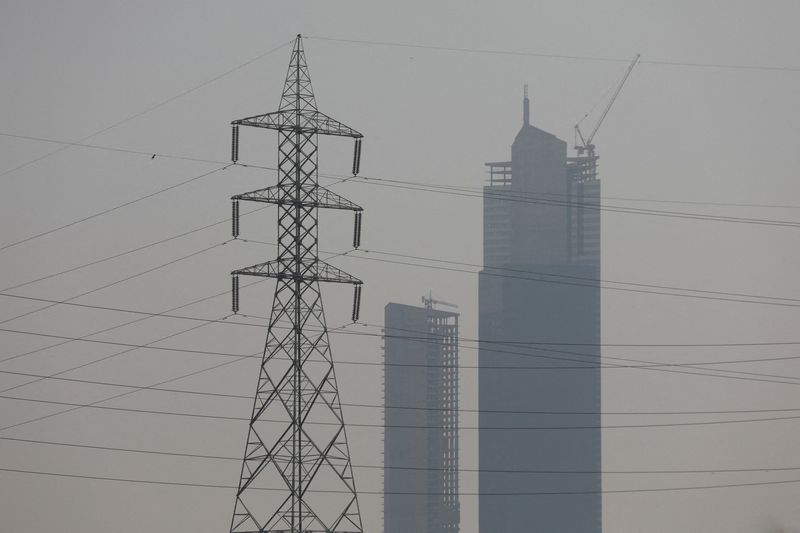By Ariba Shahid
KARACHI (Reuters) – Pakistan will cut back electrical energy tariffs throughout winter in a bid to spice up consumption and minimize the usage of for heating, its energy minister advised Reuters on Saturday.
The transfer is anticipated to supply aid to companies and residents, who’ve suffered from steep and sudden will increase in electrical energy tariffs following power sector reforms instructed by the Worldwide Financial Fund (IMF).
Utilities in Pakistan, lots of which have needed to curtail and even fully stop operations in winter months attributable to demand dropping by as much as 60% from peak summer season ranges, may also profit from the transfer.
“Reducing prices will increase demand, especially in winter when people use inefficient gas resources,” Energy Minister Awais Leghari advised Reuters in a phone interview.
Pakistan will pilot the plan beginning this winter, and the decrease tariffs will apply between December 2024 to February 2025, he mentioned.
The IMF, which authorized a $7 billion, 37-month mortgage for Pakistan in September, didn’t instantly reply to a request for remark.
Pakistan depends closely on costly pure fuel and burning wooden for heating throughout winter.
Energy consumption in Pakistan has declined 8-10% yr on yr over the previous three quarters, Leghari mentioned. However he mentioned he hopes that an financial restoration will cowl up for misplaced floor and can assist enhance demand by a internet common 2.8% yearly over the following ten years.
Leghari expects the transfer to slash winter tariffs to assist industries cut back electrical energy prices by 7-8% at an optimum degree, whereas stimulating industrial progress within the course of.

Leghari additionally mentioned the federal government is working to rationalize energy tariffs, re-profile energy sector debt and modify tax buildings inside electrical energy payments.
“The government is in talks with development partners to reduce taxes to spur growth of electric vehicles and combating the emergent problem of air pollution, promoting a shift away from combustion-based transportation towards clean energy,” he mentioned.




